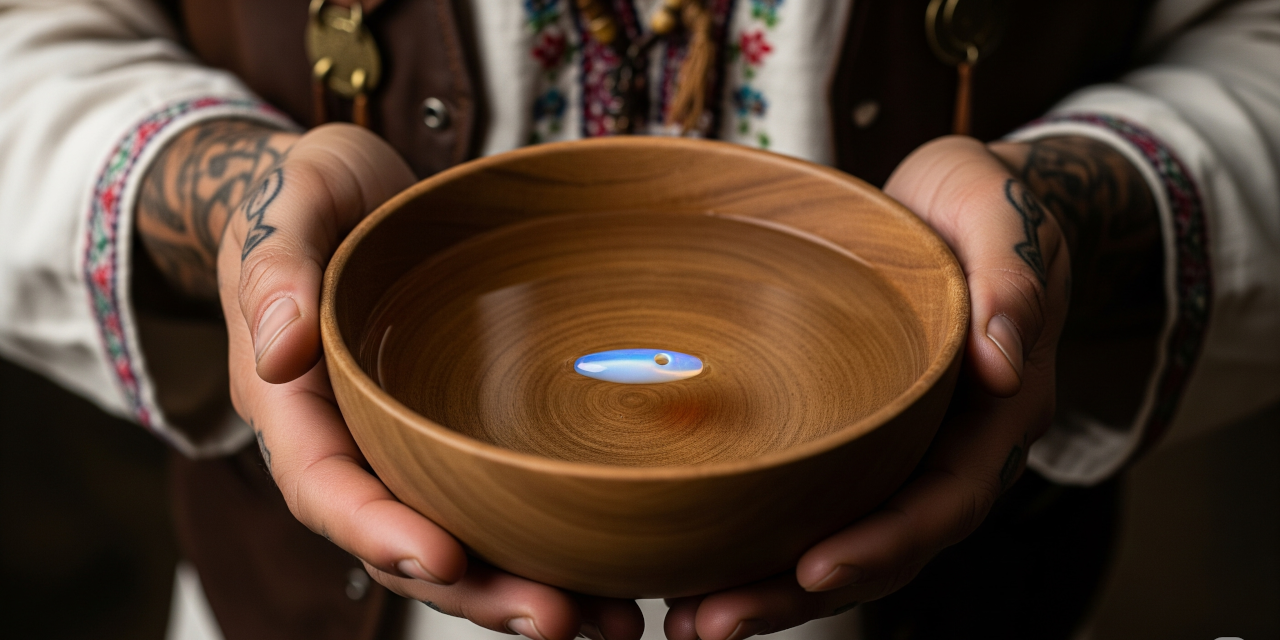Nimerou Stone
An enchanted sliver of opal often carried by many of the Whispering Kin and other folk who frequently travel the wilderness, the Nimerou Stone serves as a compass when a simple ritual is performed. Itinerant entertainers and providers of various services, sometimes illegal in nature, the traveling folk are ardent followers of Nimerou The Stranger and are well versed in his songs, blessings and teachings. Included among them are being knowledgeable in finding your way, and giving aid to the lost. Simple versions of the Stones of Nimerou are sometimes sold among the wares of such travelers, or given as gifts to friends or those who aid them.
Placed in clean water with at least one tear, and a prayer to Nimerou, the stone will float and align itself pointing north. For more devout followers of The Stranger the stone will point to other things or places as well. Tears taken by force or coercion are not effective, and neither is contaminated water or liquids more rightly described as something else, although natural bodies such as puddles, streams or lakes will work.
Families of the wandering folk have been known to reunite after being scattered by attackers or imprisoned for years with nothing more to guide them than their Nimerou Stone. A few secretive great gatherings of Whispering Kin have been coordinated with little more than dream messages and the guidance of their stones to bring together clans from all across Lorgaire.
Many traveling merchants and bards whose routes take them over land also carry Stones of Nimerou too, but at sea the stones react much more slowly and the guidance of Meash or Tala Eldoria is favored. No type of opal seems to be preferred, coming in all shades and sizes from many varied deposits. The shape of the stone is always an elongated ellipse, with some asymmetry usually provided by fashioning a hole through it suitable to hang it as a bead hidden among others. A few priests of Nimerou in centers of trade and travel will sell the enchanted stones to support their mission, but most are produced by the traveling folk.




Comments